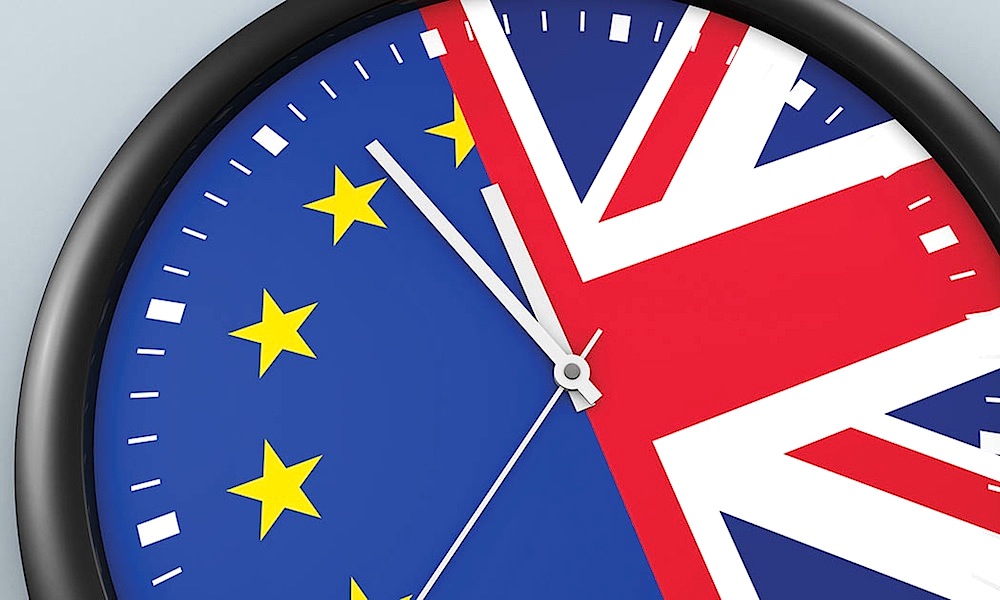
The Commission for Aviation Regulation (CAR) has called on all Irish travel agent and tour operator licence holders to ensure that they have contracts in place with air carriers for 2019 and beyond that will be fulfilled in the event of a ‘No Deal Brexit’ – and concern is growing within the trade about how EU ‘ownership and control’ rules for airlines may affect air services.
The CAR’s notice states: “The Commission wishes to draw stakeholder’s attention to the possibility of the case of what is known as a ‘No Deal Brexit’. In that regard, the European Commission’s Notice to Stakeholders – Withdrawal of the United Kingdom and EU rules in the field of air transport was published in January 2018. This document can be viewed here.
“The European Commission notice sets out the negative impact of a ‘No Deal Brexit’ on air transport. In particular, UK licensed air carriers, post Brexit, will no longer be the holders of a European Union air carrier licence. This means they will no longer have free access to routes within the European Union. Specifically, they will no longer enjoy the right to pick up passengers in Ireland and fly them to another European Union Member State.
“The Commission has contacted all Irish travel agent and tour operator licence holders to remind them that it is important that they ensure that the air carrier with which they contract for the performance of flights on their behalf is the holder of an air carrier licence that entitles it to fly the routes set out in the contract.
“Otherwise, if the carrier is prevented from so doing on the grounds that it is not legally entitled to perform those flights, the licence holder may be unable to fulfil their contractual obligations to their customers, which may result in a call on their bond and subsequent loss of their licence.”
Airline Ownership and Control Rules
For air carriers holding EU operating licences, in order to keep an EU operating licence and benefit from the intra-EU air traffic rights, air carriers must comply at all times with the conditions under Article 4 of Regulation (EC) No 1008/2008 on air services. These conditions include, among others, the need to have one’s principal place of business within an EU Member State, and to be majority owned and effectively controlled by EU Member States and/or nationals of EU Member States. If the conditions are no longer fulfilled as a consequence of the UK becoming a third country, the operating licence at issue will no longer be valid.
For air carriers holding an operating licence delivered by the UK authorities, as of the withdrawal date, the operating licences granted to airlines by the UK Civil Aviation Authority will no longer be valid EU operating licences.
New Passenger Advisory Group
Meanwhile, the CAR has also launched a new Passenger Advisory Group. The Passenger Advisory Group will improve CAR’s understanding of what is important to passengers at Dublin Airport. The Passenger Advisory Group will assist CAR in examining how passenger priorities are addressed by Dublin Airport, in relation to the service quality offered and the five-year capital investment programme planned at the airport.
The group has 13 representatives from organisations that represent the diversity of passengers at Dublin Airport:
- Leisure passengers are represented by the Consumer’s Association of Ireland, the European Consumer Centre and Fáilte Ireland.
- Older passengers are represented by Age Action and younger passengers by the National Youth Council of Ireland.
- People with reduced mobility or disabilities are represented by the National Disability Authority, the Disability Stakeholders Group, the Irish Society for Autism, the National Council for the Blind Ireland, and Alzheimer’s Europe.
- Business passengers are represented by the Irish Business and Employers Confederation (IBEC), Chambers Ireland, and Ireland’s inward investment promotion agency, the IDA.
The Passenger Advisory Group will assist CAR in achieving one of its statutory objectives which is to protect the reasonable interests of current and prospective users of Dublin Airport. It is also in line with the Government’s 2017 National Policy Statement on Airport Charges, which states that “the primary purpose of the regulation shall be to protect and advance the best interests of current and future customers who use Dublin Airport”.
Adrian Corcoran, Director of Economic Regulation, CAR, said: “We look forward to working with this diverse group of passenger representatives to ensure that our price cap decision for Dublin Airport fully considers the priorities identified by passengers.”
In 2018, the price cap per passenger was €9.59. Prices are generally set for a five-year cycle. In 2019, CAR will set prices for 2020-2024.
In setting the price cap, CAR also sets service quality targets. If Dublin Airport fails to meet these targets it incurs a financial penalty. For example, queue times for security check should not exceed 30 minutes, the infrastructure for processing bags should be available, and passenger satisfaction with nine measures such as cleanliness, helpfulness of staff, ease of wayfinding, etc, should be scored minimum as ‘good’ or ‘very good’ depending on the measure.
In 2018, Dublin Airport incurred an estimated revenue loss of €600,000 due to four breaches of the maximum security queue time. The Passenger Advisory Group will assist the CAR in establishing the future quality of service measures, targets and penalties for 2020 onwards.
CAR is currently assessing Dublin Airport’s capital investment plans for 2020-2024. Dublin Airport’s draft plan is for €1.7 billion of investment, including €1 billion in large-scale capacity projects. The Passenger Advisory Group will assist CAR in assessing if the passenger-facing projects meet passenger priorities.
Further information on the Passenger Advisory Group is available here and details on the 2019 determination of airport charges can be found here.




